- Home
- Michael Connelly
Dark Sacred Night - Ballard and Bosch #1;Renée Ballard #2 Page 8
Dark Sacred Night - Ballard and Bosch #1;Renée Ballard #2 Read online
Page 8
“I wanted to check him out a little bit first,” Bosch said. “I made some calls while you were in the strip club.”
“And?”
“And the Moonlight Mission still exists and he’s still there.”
“Anything else?”
“The van—it’s still registered to him and apparently still in service.”
“Okay, but I have a stack back at the station of about twenty van stops. Why is this the one card you decided to steal?”
“Well, I didn’t steal it. I’m showing it to you. How’s that stealing?”
“I told you all the cards had to remain on LAPD property except that stack I let you take tonight.”
“Okay, fine. I took one of the cards I read earlier because I thought maybe after your callout we’d cruise by the Moonlight Mission and see what it’s all about. That’s all.”
She dropped her eyes to her plate and pushed the eggs around again with her fork. She didn’t like the way she was acting, being so picky and by the book with Bosch.
“Look,” Bosch said. “I know about you. I know you’ve been burned bad in the department. So was I. But I’ve never betrayed a partner, and over the years, I’ve had a lot of them.”
Ballard looked up at him.
“Partner?” she said.
“On this case,” Bosch said. “You said you wanted in. I let you in.”
“It’s not your case. It’s an LAPD case.”
“It belongs to whoever’s working it.”
Bosch took a sip of coffee, but she could tell by his reaction that it had gone cold. He turned to look back from the booth toward the kitchen, where the waitress was loitering, and held the mug up for more.
He then turned back to Ballard.
“Look, you want to work with me on it, then fine, let’s work,” he said. “If not, we work separately, and that would be too bad. But this territorial bullshit…that’s why nothing ever gets done. Like the great man said, Can’t we all just get along?”
Ballard was about to bark back at him, but the waitress was suddenly at the table with the coffee pot, and she held her tongue while both mugs were topped off. In those few seconds she calmed and thought about what Bosch had just said.
“Okay,” she said.
The waitress put a check down on the table and walked back toward the kitchen.
“Okay what?” Bosch said. “Which way do you want to go?”
Ballard reached over and grabbed the check.
“Let’s go to the Moonlight Mission,” she said.
When they got into Ballard’s city ride, she used her cell to call Lieutenant Munroe and tell him she was back in service but pursuing an investigative lead and would be out of the station until further notice. Munroe asked what case she was working on and she put him off, saying it was just a loose end on a hobby case. She disconnected and started the car.
“You don’t like him, do you?” Bosch said.
“I’m the only detective who has to report to a patrol lieutenant,” Ballard said. “He’s not really my boss but he likes to think he is. And look, about before? That callout to the strip club…it just sort of fired up my feral instincts. I shouldn’t have said you stole the shake card, okay? I apologize.”
“No need to. I get it.”
“No, you don’t. You couldn’t. But I appreciate your saying so.”
She pulled out of the empty Farmers Market parking lot onto Fairfax and headed north.
“Tell me about John the Baptist,” she said. “Where are we going and why?”
“The mission is on Cherokee near Selma—south of the Boulevard,” Bosch said. “And something about this guy looking for people to baptize poked at me. Call it a hunch, whatever. But Daisy was washed in bleach. I’m not much into organized religion, but when you get baptized you get immersed in the waters of Jesus or whatever, right?”
“I’m not much into it either—organized religion. I grew up in Hawaii. My father chased waves. That was our religion.”
“A surfer. And your mother?”
“Missing in action. Back to John the Baptist. How did you—”
Before finishing the question, Ballard looked over at the mobile data computer terminal mounted on the dashboard. It was on a swivel and she knew that the screen had been facing the driver’s seat when they left the station earlier because she wasn’t working with a partner all this week while Jenkins was out. The screen had been turned and now faced Bosch.
“You used the MDC?” she asked in an accusing voice. “To run McMullen?”
Bosch shrugged and she took that as a yes.
“How?” she demanded. “Did you steal my password?”
“No, I didn’t,” Bosch said. “I used my old partner’s. She only changes the last two digits each month. I remembered.”
Ballard was about to pull over and dump Bosch out of the car, but then she remembered that she had once used a former partner’s password to log into the department database on the down-low. Her partner was even dead at the time. How could she jump on Bosch for the same thing?
“So, what did you find?” she asked.
“He’s clean,” Bosch said. “No record.”
They drove in silence for a while. Ballard took Fairfax all the way up to Hollywood Boulevard and then turned east.
“It’s a lucky break that John the Baptist still has the van,” she said. “If Daisy was ever in it, there might still be evidence.”
Bosch nodded.
“Exactly what I was thinking,” he said. “A lucky break—but only if he’s the guy.”
11
The Moonlight Mission was located in an old Hollywood bungalow that had somehow survived the ravages of time. It was completely surrounded by commercial structures and pay lots that serviced Hollywood Boulevard a block to the north and Sunset Boulevard a block south. It stood like an orphan in its concrete surroundings, the last vestige of a period when Hollywood was primarily a residential suburb of downtown.
Ballard came down Cherokee from the Boulevard and turned left on Selma. The front of the two-story Victorian was on Cherokee but there was a gated drive-in entrance to the rear of the house on Selma. Through the gate, she glimpsed a white van.
“There’s the van,” she said. “Did you see any lights on inside?”
“A couple,” Bosch said. “Doesn’t seem like a lot of activity at the mission tonight.”
Ballard pulled into an empty self-pay lot and turned the lights off but left the engine and the heater running. She checked her watch. It was almost five, and she knew Bosch would need to go soon.
“What do you think?” she said. “We could go back to the station and knock off some more cards before you head out.”
“Let’s take another run by the front,” Bosch said. “See what we’ve got.”
Ballard dropped the car into drive and headed out of the lot. This time when they went by, the property would be on Bosch’s side and he would get the best look.
Ballard took it slow, and just as she passed the property on the Selma side, the lights of the van behind the gate came on.
“He’s leaving,” Bosch said excitedly.
“Did you see him?” Ballard asked.
“No, just the headlights. But somebody’s leaving. Let’s see who and where to.”
Ballard crossed through the intersection and pulled to the curb, still on Selma. She turned the lights on the G-ride off.
“He probably made us,” she said.
“Maybe not,” Bosch said.
He slid down in his seat and leaned to his right. Ballard was much smaller but she did the same thing, leaning left like she was asleep but giving herself an angle on the sideview mirror.
She watched the van pull through the automatic gate and turn toward them on Selma.
“Here he comes,” she said.
The van went by the detective car without hesitation. It continued down Selma to Highland Avenue. It stopped and then turned left. Once it was out of sight, Ballard put the li
ghts on and headed down Selma.
There were so few cars on Highland that it was easy to track the van but hard not to be obvious about it. For several blocks they were the only two vehicles on the road. Bosch and Ballard were silent as they followed.
At Melrose the van made an abrupt U-turn and headed back up Highland.
“He made us,” Ballard said. “What should we—”
She stopped when the van turned into a shopping plaza on the corner.
“Keep going a few blocks,” Bosch said. “Then turn right and come back on Melrose.”
Ballard followed his instructions. When they got back to the intersection of Melrose and Highland, they spotted the van parked in front of a twenty-four-hour Yum Yum Donuts store. Ballard knew it was a popular place with the late show crew.
“He’s just getting donuts,” Ballard said. “He’ll then head back to the mission or he’ll go give them out at the homeless encampments and see if he can pick up a few baptisms.”
“Probably,” Bosch said.
“You want to go get doughnuts and get a look at him?”
“I’d rather get a look inside the van, see what he’s got in there.”
“Gaslight him?”
Bosch checked his watch.
“Let’s do it,” he said.
Ten minutes later, after discussing a strategy, they were following the van back up Highland. They had seen a white man wearing what looked like a full-length bathrobe come out of Yum Yum with two twelve-packs of doughnuts and then hop behind the wheel of the van. As they crossed Sunset, Ballard put on the grille lights of the detective car and straddled the lane so the van’s driver could see her in his sideview. She signaled him over and he complied, pulling to the curb at the corner of Highland and Selma.
Ballard and Bosch both got out and approached on either side of the van. Ballard flipped her jacket back and kept her hand on her holstered gun as she approached the driver-side door. The window came down as she got there. She noticed that on the door just below the window was written JOHN 3:16. She guessed that McMullen had named himself after a Bible verse.
“Good morning,” she said. “How are you today, sir?”
“Uh, I’m fine,” he said. “Is there a problem, Officer?”
“It’s Detective, actually. Can I get some identification from you, sir?”
The man already had his driver’s license in his hand. Ballard checked it, her eyes flicking from the ID to the man behind the wheel, wary of any quick move. McMullen had a beard and long hair with gray streaks that had infiltrated since the ID photo was taken.
The DOB on the license put him at forty-five years old. The address corresponded with the Moonlight Mission bungalow. She handed the driver’s license back.
“What brings you out on the street so early, sir?” Ballard asked.
“I went to get doughnuts for my people,” McMullen said. “How come you’re stopping me?”
“We got a report of a van that was being driven erratically. Suspected drunk driver. Have you been drinking, sir?”
“No, and I never drink. Alcohol is the work of the devil.”
“Do you mind stepping out of the van so we can make sure?”
McMullen noticed Bosch staring at him through the passenger-side window. He turned his head back and forth between him and Ballard.
“I told you I don’t drink,” he protested. “Haven’t had a drop in twenty-one years.”
“Then it should be pretty easy to show us you’re sober,” Ballard said.
McMullen gripped the steering wheel until Ballard could see the points of his knuckles turn white.
“All right,” he said. “But you’re wasting your time.”
He reached his hand down out of sight and Ballard gripped her gun, ready to go. She saw Bosch make a quick head shake, telling her everything was all right. Then she heard McMullen’s seatbelt come off. He opened the door and climbed out, then slammed it behind him. He was dressed the part of the missionary in sandals and a white tunic cinched at the waist by a braided rope. Over this he wore an ankle-length maroon robe with gold tassels on the sleeves.
“Is there anyone else in the van, sir?” Ballard asked.
“No,” McMullen said. “Why should there be?”
“Officer safety, sir. My partner’s going to check to make sure. Are you okay with that?”
“Whatever. The lock on the side door’s broken. He can open it.”
“Okay, sir, please step to the back of your vehicle, where it’s safer.”
Ballard nodded to Bosch, who was now standing at the front of the van. She followed McMullen to the rear and started putting him through old-school field sobriety testing. She began with the walk and turn so she could glance back while McMullen was walking a straight line away from her. She saw Bosch leaning into the van through the rear side door. It looked like nothing was amiss.
McMullen completed the maneuver without issue.
“I told you,” he said.
“Yes, you did, sir,” Ballard said. “I want you now to face me and raise your right leg and hold it up, standing only on your left foot. Do you understand? I then want you to count to ten while keeping your foot up.”
“Not a problem.”
McMullen raised his leg and stared at Ballard.
“Who are your people?” Ballard asked.
“What do you mean?” McMullen said.
“You said you just got doughnuts for your people.”
“The Moonlight Mission. I have a flock.”
“So you’re a preacher. You can put your foot down.”
“Of sorts. I just try to lead people to the Word of God.”
“And they go willingly? Raise your other foot now and hold it.”
“Of course they do. Or they can leave. I don’t force anybody to do anything.”
“You provide beds for people, or is it just prayer services?”
“We have beds. People can stay temporarily. Once they find the Word, they want to get off the streets and make something of their lives. We’ve saved many. We’ve baptized many.”
While McMullen was speaking, Ballard heard Bosch slide the van’s door closed. His footsteps came up behind her.
“Young girls?” Bosch said over her shoulder. “They part of your flock?”
McMullen lowered his foot to the ground.
“What is this?” he said. “Why’d you pull me over?”
“Because we’re looking for a girl who went missing last night,” Ballard said. “A witness said she got pulled into a van.”
“Not my van,” McMullen said. “It’s been parked all night behind a gate. You saw. There’s nothing in there.”
“Not now,” Bosch said.
“How dare you!” McMullen fired back. “How fucking dare you to try to impugn the good work of the mission! I am in the business of saving souls, not taking them. I’ve been going down these streets for twenty years and no one has ever accused me of anything improper. Anything!”
As McMullen spoke, tears filled his eyes and his voice grew tight and high.
“Okay, okay, sir,” Ballard said. “You have to understand, we need to ask these questions. When a young girl disappears, we have to do what we need to do and sometimes we step on toes. You can go now, Mr. McMullen. Thank you for your cooperation.”
“I want your names,” McMullen demanded.
Ballard looked at Bosch. They had intentionally not identified themselves when they had first stopped McMullen.
“Ballard and Bosch,” she said.
“I’ll remember that,” McMullen said.
“Good,” Bosch said.
McMullen climbed back into the van as Ballard and Bosch watched. He roared the engine and took a sharp turn onto Selma.
“What did you see?” Ballard asked.
“A couple bench seats and not much else,” Bosch said. “I took some photos I’ll show you in the car.”
“You mean no baptismal font full of bleach?” Ballard asked.
“Not quite.”
“So what do you think?”
“Doesn’t mean anything. I’m still interested. What do you think?”
“Something seems off but I don’t know. It will be interesting to see if he files a complaint.”
“If he’s our guy, he doesn’t file the complaint, because he won’t want the follow-up.”
They walked back to Ballard’s car and got in. Ballard was silent as she pulled away from the curb. She was wondering if joining forces with Bosch had been a career-threatening mistake.
Bosch
12
The search team was waiting outside Pacoima Tire & Muffler when the current owner opened up for a day of business. To say he was surprised by the police presence that greeted him was an understatement. After lifting the garage door, he held his arms aloft and stared wide-eyed at the vehicles amassed in front of him. Bosch was the first out of his car and the first to get to him.
“Mr. Cardinale?” he said. “You can put your hands down. I’m Detective Bosch with the San Fernando Police Department. We have a search warrant for these premises.”
“What?” Cardinale said. “What are you talking about?”
Bosch handed him the warrant.
“It’s a search warrant,” he said. “Signed by a judge. And it allows us to search for specific evidence relating to a crime.”
“What crime?” Cardinale said. “I run a clean business. I’m not like the guy who was here before.”
“We know that, sir. The crime relates to the prior ownership of the business but we still need to search, because we believe the evidence may still be in place.”
“I still don’t know what you’re talking about. There is no crime here.”
It took Bosch several more exchanges before Cardinale seemed to understand what was happening. He was about fifty with a midlife paunch and gray thinning hair. His hands were scarred from a lifetime spent working on cars. He had blurred blue tattoos on his forearms that looked to Bosch like old military insignia.
“How long ago did you take over the business?” Bosch asked.
“Eight years,” Cardinale said. “I bought it for cash. No loan. My own hard-earned money.”
“When you bought it, did you make any changes inside?”

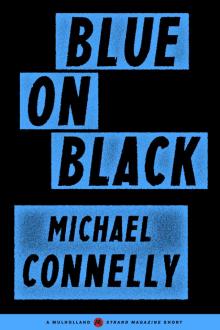 Blue on Black
Blue on Black The Black Ice (1993)
The Black Ice (1993) Crime Beat: A Decade of Covering Cops and Killers
Crime Beat: A Decade of Covering Cops and Killers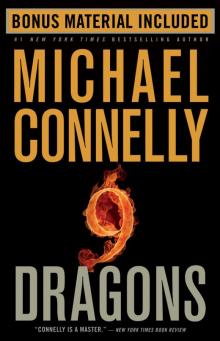 Nine Dragons
Nine Dragons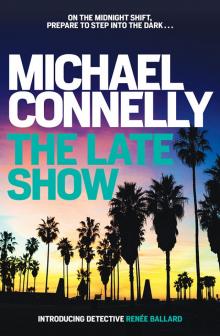 The Late Show
The Late Show City of Bones
City of Bones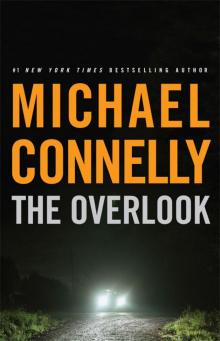 The Overlook
The Overlook The Crossing
The Crossing The Poet (1995)
The Poet (1995) Murder Worthy
Murder Worthy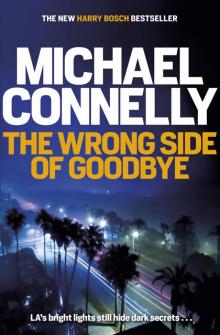 The Wrong Side of Goodbye
The Wrong Side of Goodbye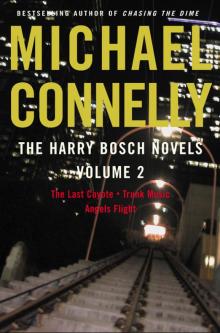 Harry Bosch Novels, The: Volume 2
Harry Bosch Novels, The: Volume 2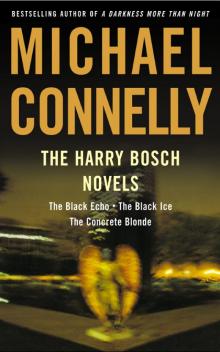 The Harry Bosch Novels
The Harry Bosch Novels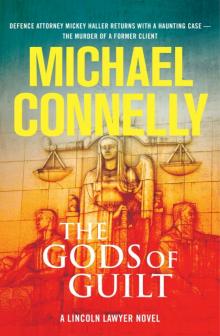 The Gods of Guilt
The Gods of Guilt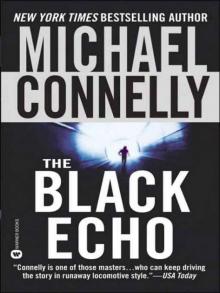 The Black Echo
The Black Echo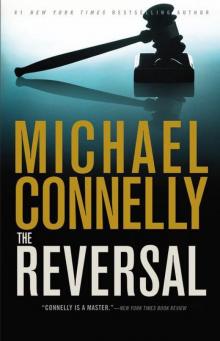 The Reversal
The Reversal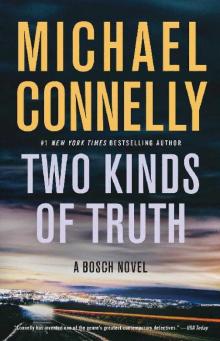 Two Kinds of Truth
Two Kinds of Truth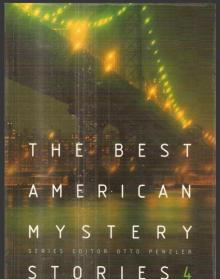 The Best American Mystery Stories 2003
The Best American Mystery Stories 2003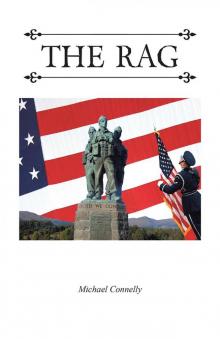 The Rag
The Rag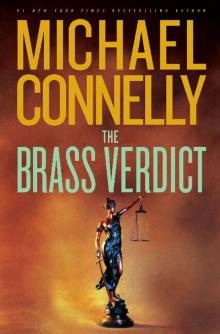 The Brass Verdict
The Brass Verdict The Black Echo (1992)
The Black Echo (1992)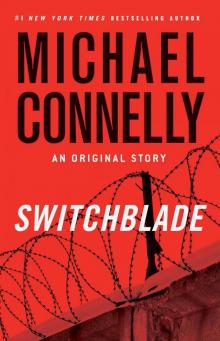 Switchblade
Switchblade The Last Coyote
The Last Coyote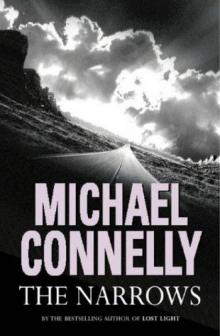 The Narrows
The Narrows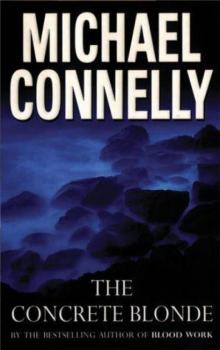 The Concrete Blonde (1994)
The Concrete Blonde (1994)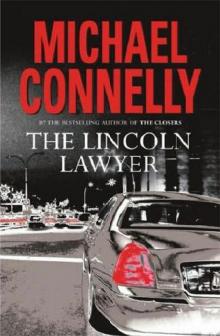 THE LINCOLN LAWYER (2005)
THE LINCOLN LAWYER (2005)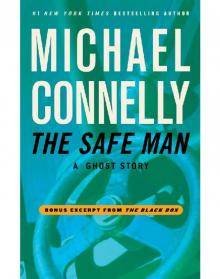 The Safe Man: A Ghost Story
The Safe Man: A Ghost Story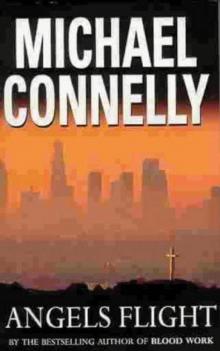 Angels Flight (1998)
Angels Flight (1998) Void Moon
Void Moon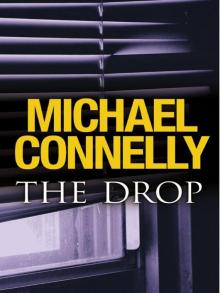 The Drop
The Drop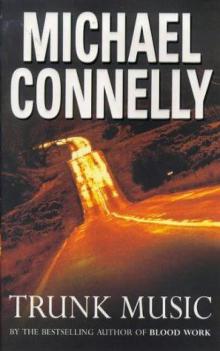 Trunk Music
Trunk Music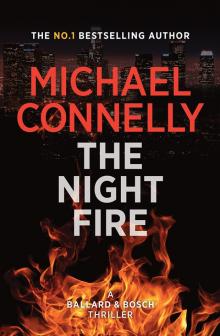 The Night Fire
The Night Fire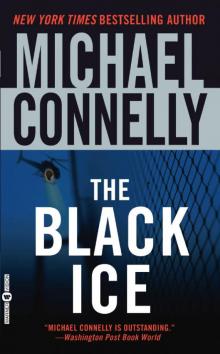 The Black Ice
The Black Ice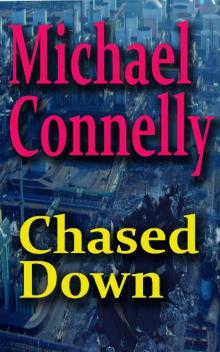 Chased Down
Chased Down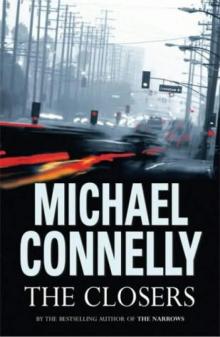 The Closers
The Closers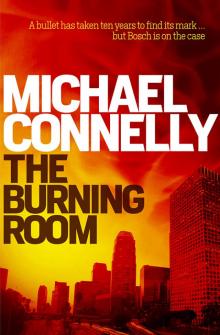 The Burning Room
The Burning Room Angels Flight
Angels Flight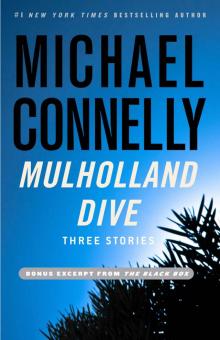 SSC (2012) Mulholland Drive
SSC (2012) Mulholland Drive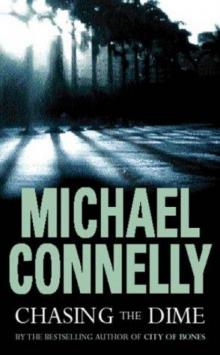 Chasing the Dime
Chasing the Dime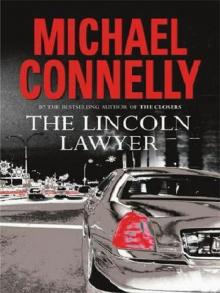 The Lincoln Lawyer
The Lincoln Lawyer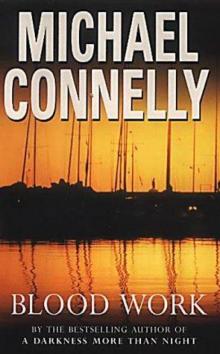 Blood Work (1998)
Blood Work (1998)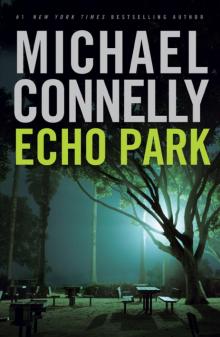 Echo Park
Echo Park A Darkness More Than Night
A Darkness More Than Night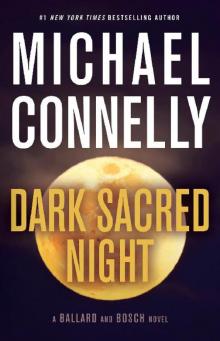 Dark Sacred Night - Ballard and Bosch #1;Renée Ballard #2
Dark Sacred Night - Ballard and Bosch #1;Renée Ballard #2 Lost Light
Lost Light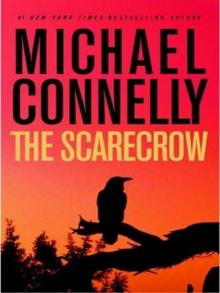 The Scarecrow
The Scarecrow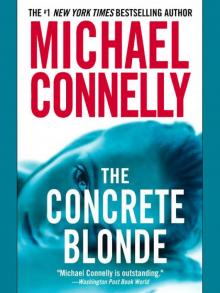 The Concrete Blonde
The Concrete Blonde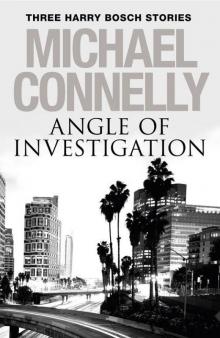 Angle of Investigation
Angle of Investigation Suicide Run: Three Harry Bosch Stories
Suicide Run: Three Harry Bosch Stories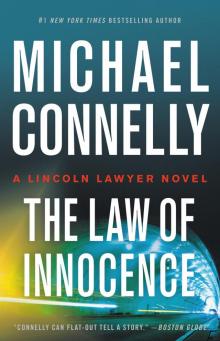 The Law of Innocence
The Law of Innocence Murder in Vegas: New Crime Tales of Gambling and Desperation
Murder in Vegas: New Crime Tales of Gambling and Desperation City Of Bones (2002)
City Of Bones (2002)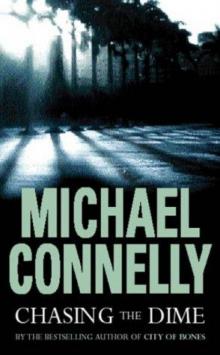 Chasing the Dime (2002)
Chasing the Dime (2002)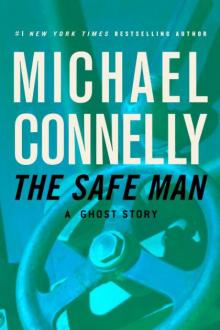 The Safe Man
The Safe Man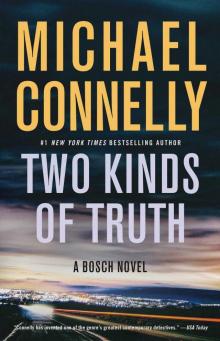 Two Kinds of Truth (A Harry Bosch Novel)
Two Kinds of Truth (A Harry Bosch Novel)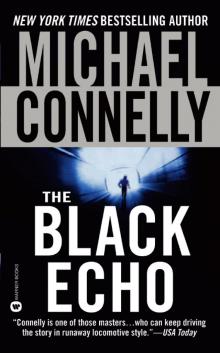 Harry Bosch 01 - The Black Echo
Harry Bosch 01 - The Black Echo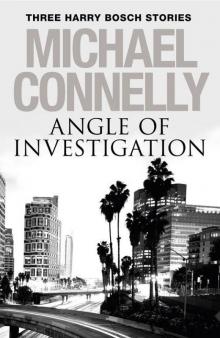 Angle of Investigation: Three Harry Bosch Short Stories
Angle of Investigation: Three Harry Bosch Short Stories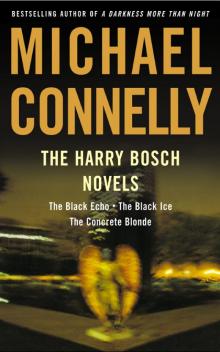 The Harry Bosch Novels Box Set 1
The Harry Bosch Novels Box Set 1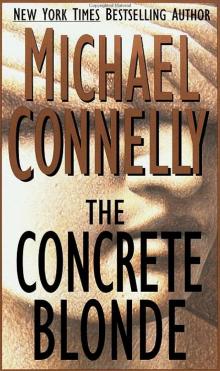 The Concrete Blonde hb-3
The Concrete Blonde hb-3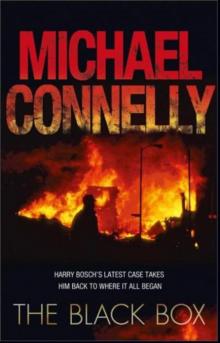 The Black Box hb-18
The Black Box hb-18 Short Stories
Short Stories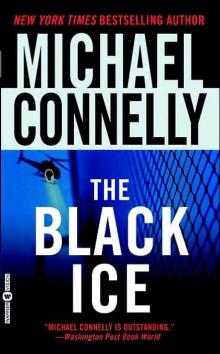 The Black Ice hb-2
The Black Ice hb-2 The Last Coyote (1995)
The Last Coyote (1995) The Gods of Guilt mh-5
The Gods of Guilt mh-5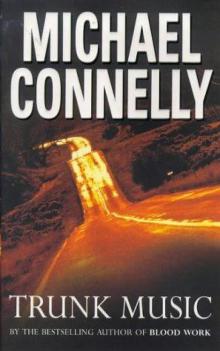 Trunk Music (1996)
Trunk Music (1996)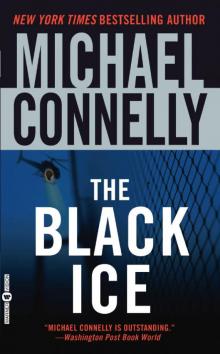 Harry Bosch 02 - The Black Ice
Harry Bosch 02 - The Black Ice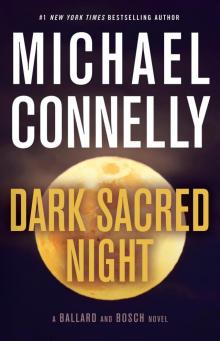 Dark Sacred Night
Dark Sacred Night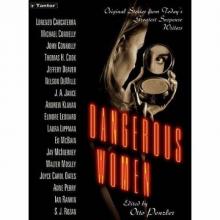 Cielo Azul
Cielo Azul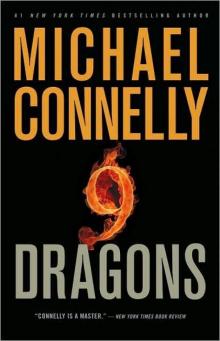 9 Dragons
9 Dragons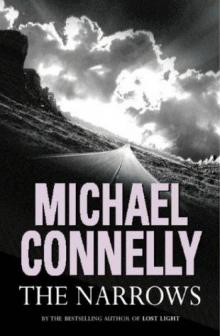 The Narrows (2004)
The Narrows (2004)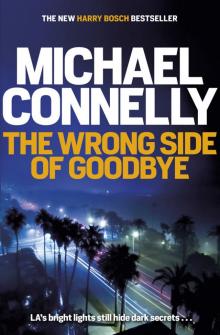 The Wrong Side of Goodbye (Harry Bosch Series)
The Wrong Side of Goodbye (Harry Bosch Series)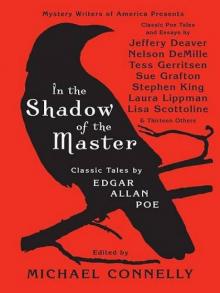 In The Shadow Of The Master: Classic Tales by Edgar Allan Poe
In The Shadow Of The Master: Classic Tales by Edgar Allan Poe Void Moon (1999)
Void Moon (1999)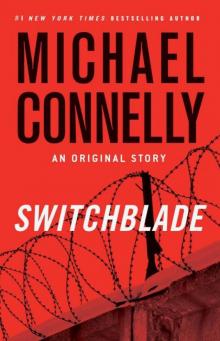 Switchblade: An Original Story (harry bosch)
Switchblade: An Original Story (harry bosch)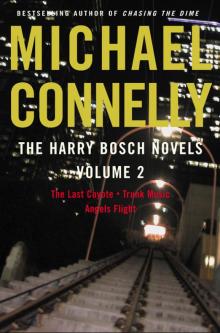 The Harry Bosch Novels, Volume 2
The Harry Bosch Novels, Volume 2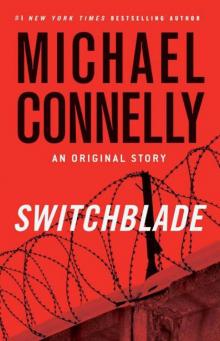 Switchblade: An Original Story
Switchblade: An Original Story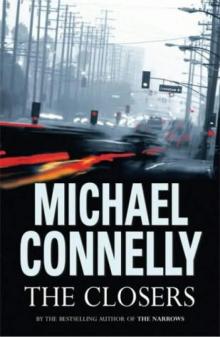 The Closers (2005)
The Closers (2005) Crime Beat
Crime Beat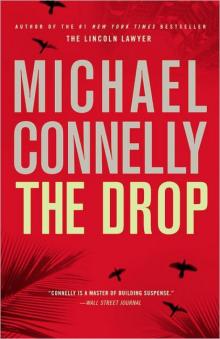 The Drop hb-17
The Drop hb-17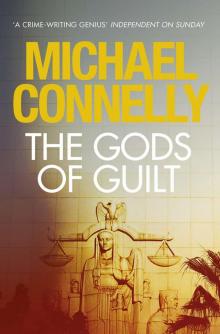 The Gods of Guilt (Mickey Haller 5)
The Gods of Guilt (Mickey Haller 5)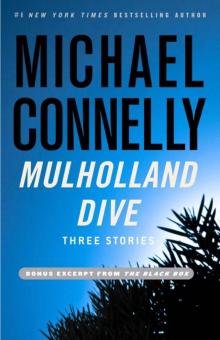 Mulholland Dive: Three Stories
Mulholland Dive: Three Stories Lost Light (2003)
Lost Light (2003)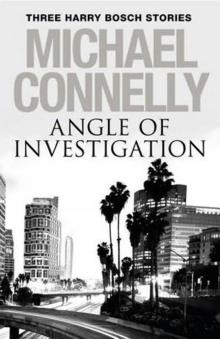 Angle of Investigation: Three Harry Bosch Stories
Angle of Investigation: Three Harry Bosch Stories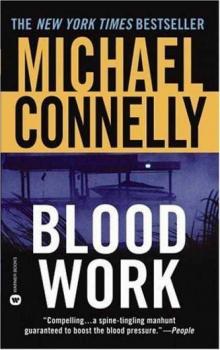 Blood Work
Blood Work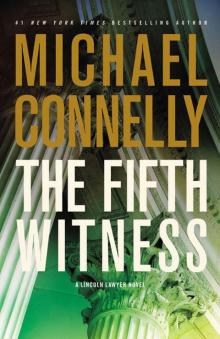 The Fifth Witness: A Novel
The Fifth Witness: A Novel A Darkness More Than Night (2000)
A Darkness More Than Night (2000)